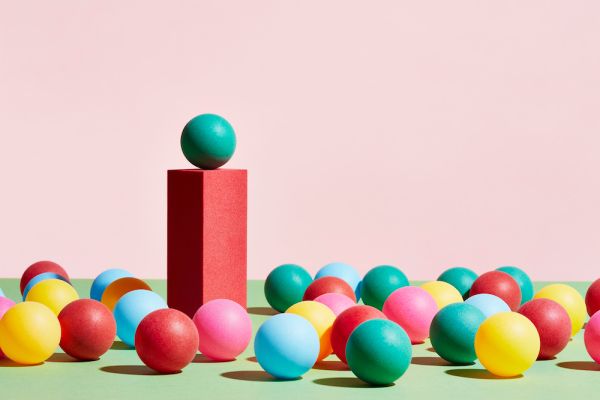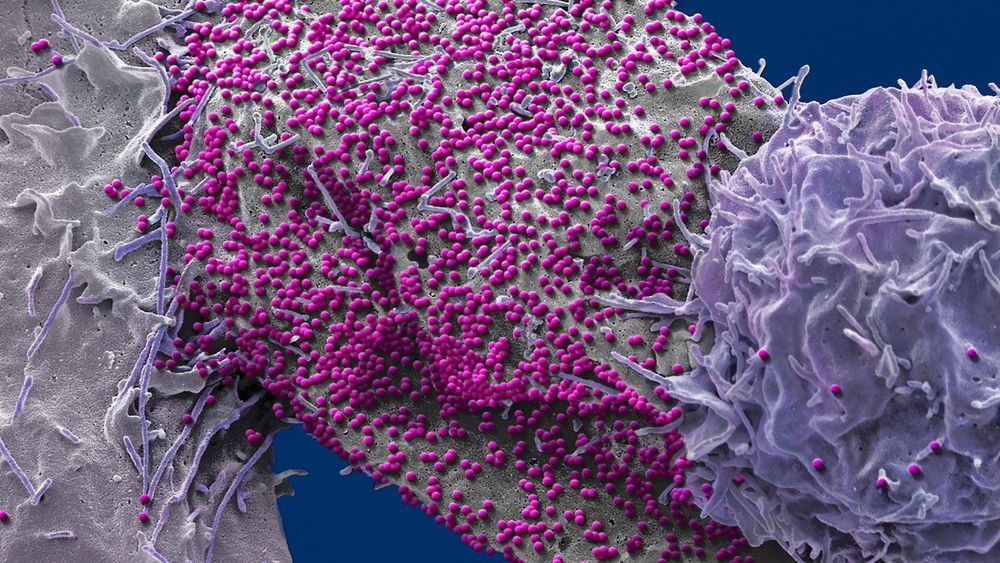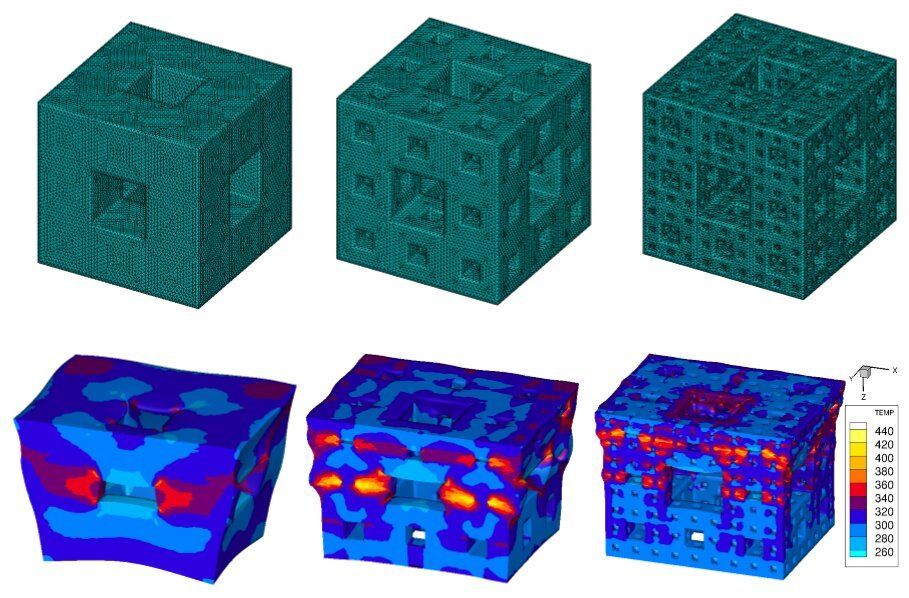This fundamental shift provides an opening for a new cohort of no code companies to grow into the next generation of software powerhouses.



A 36-year-old man in Brazil has seemingly cleared an HIV infection—making him the proof of principle in humans of a novel drug strategy designed to flush the AIDS virus out of all of its reservoirs in the body. But scientists caution that the success hasn’t been long or definitive enough to label it a cure…so granted it worked, not so fast.
Vitamin and antiviral drugs appear to clear AIDS virus, but it could still be hiding out in tissue reservoirs.


Tiny, 3D printed cubes of plastic, with intricate fractal voids built into them, have proven to be effective at dissipating shockwaves, potentially leading to new types of lightweight armor and structural materials effective against explosions and impacts.
“The goal of the work is to manipulate the wave interactions resulting from a shockwave,” said Dana Dattelbaum, a scientist at Los Alamos National Laboratory and lead author on a paper to appear in the journal AIP Advances. “The guiding principles for how to do so have not been well defined, certainly less so compared to mechanical deformation of additively manufactured materials. We’re defining those principles, due to advanced, mesoscale manufacturing and design.”
Shockwave dispersing materials that take advantage of voids have been developed in the past, but they typically involved random distributions discovered through trial and error. Others have used layers to reverberate shock and release waves. Precisely controlling the location of holes in a material allows the researchers to design, model and test structures that perform as designed, in a reproducible way.

Physicists at MIT have designed a quantum “light squeezer” that reduces quantum noise in an incoming laser beam by 15 percent. It is the first system of its kind to work at room temperature, making it amenable to a compact, portable setup that may be added to high-precision experiments to improve laser measurements where quantum noise is a limiting factor.
The heart of the new squeezer is a marble-sized optical cavity, housed in a vacuum chamber and containing two mirrors, one of which is smaller than the diameter of a human hair. The larger mirror stands stationary while the other is movable, suspended by a spring-like cantilever.
The shape and makeup of this second “nanomechanical” mirror is the key to the system’s ability to work at room temperature. When a laser beam enters the cavity, it bounces between the two mirrors. The force imparted by the light makes the nanomechanical mirror swing back and forth in a way that allows the researchers to engineer the light exiting the cavity to have special quantum properties.

By tuning the direction of the external magnetic field with respect to the crystallographic axis of the silicon wafer, an improvement of spin lifetime (relaxation time) by over two orders of magnitude was reported in silicon quantum dots. This breakthrough was carried out by a team led by academician Guo Guangcan from CAS Key Laboratory of Quantum Information, USTC, in which Prof. Guo Guoping, Prof. Li Hai-Ou with their colleagues and Origin Quantum Computing Company Limited. This work was published in Physical Review Letters on June 23, 2020.
Spin qubits based on silicon quantum dots have been a core issue in the development of large scale quantum computation due to its long coherence time and the compatibility with modern semiconductor technology. Recently, the relaxation time and dephasing time of spin qubits developed in Si MOS (Metal-Oxide-Semiconductor) and Si/SiGe heterostructure have surpassed hundreds of milliseconds and hundreds of microseconds, respectively, resulting in a single-qubit control fidelity over 99.9% and a two-qubit gate fidelity over 98%. With the success in college, labs and companies from the industry are starting to be involved in this field, such as Intel, CEA-Leti, and IMEC. However, the existence of valley states (a state associated with the dip in a particular electronic band) in silicon quantum dots could reduce spin relaxation time and dephasing time seriously via spin-valley mixing and limit the control fidelity of qubits.

The Genome Aggregation Database has collected 15,708 genomes and 125,748 exomes (the protein-coding part of the genome) to help shed light on how genetic mutations can lead to disease. Dr Daniel MacArthur, scientific lead of the gnomAD Project, explains how the project started, how they collect the data and what they hope to achieve.
Pipeline owners Dominion and Duke Energy announced Sunday they were cancelling the fossil fuel project due to mounting delays and uncertainty. They said the many legal challenges to the project had driven up the projected costs by almost half, from $4.5 to $5 billion when it was first announced in 2014 to $8 billion according to the most recent estimate.
Environmental and community groups, who have long opposed the project on climate, conservation and racial justice grounds, welcomed the news.
“If anyone still had questions about whether or not the era of fracked gas was over, this should answer them,” Sierra Club Executive Director Michael Brune said in a statement emailed to EcoWatch. “Today is a historic victory for clean water, the climate, public health, and our communities. Duke and Dominion did not decide to cancel the Atlantic Coast Pipeline — the people and frontline organizations that led this fight for years forced them into walking away. Today’s victory reinforces that united communities are more powerful than the polluting corporations that put profits over our health and future.”

Having hypertension in midlife (ages 40 through 60) is associated with elevated risk of cognitive impairment and Alzheimer’s dementia later in life, even more so than having the so-called Alzheimer’s gene.
“It is clear that cerebral vascular disease”—that is, hardening of the arteries inside our brain—“and cognitive decline travel hand in hand,” something I’ve addressed before. “However, the independent association of AD [Alzheimer’s disease] with multiple AVD [atherosclerotic vascular disease] risk factors suggests that cholesterol is not the sole culprit in dementia.”
As I discuss in my video Higher Blood Pressure May Lead to Brain Shrinkage, one of the most consistent findings is that elevated levels of blood pressure in midlife, ages 40 through 60, is associated with elevated risk of cognitive impairment and Alzheimer’s dementia later in life—in fact, even more so than having the so-called Alzheimer’s gene.

Aging/longevity/heathspan fans!!
Aging Journal – The mitochondrial derived peptide humanin is a regulator of lifespan and healthspan
The scientists observed that species which are already predisposed to long life, including the naked mole rat had high levels of humanin, while mice, in contrast, experience a 40% decrease in humanin over the first 18 months of their life and primates experienced a similar notable decrease between the ages of 19 and 25.